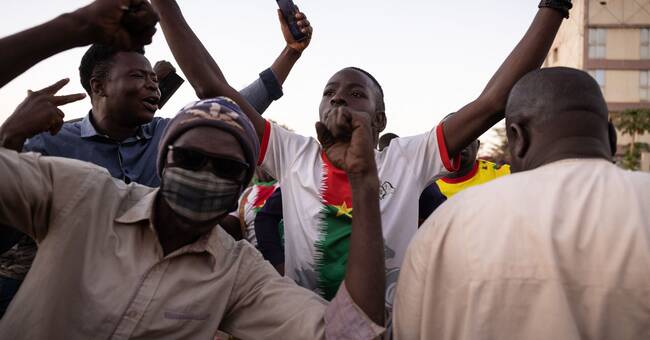A military junta has seized power in Burkina Faso.
In an appearance on Burkina Faso television on Monday, they said they had taken President Roch Marc Christian Kaboré into custody, dissolved parliament and closed the country's borders.
The coup follows a long period of turbulence linked to the bloody struggle against jihadist groups in the northern parts of the country that has been going on for several years.
As recently as November, 49 military police officers were killed in an attack.
Criticism has been harsh against President Kaboré, who is not considered to have done enough to prevent the killing.
-There has long been frustration, both among the population and within the various parts of the country's security forces.
The military junta wants to do what they believe the president has failed to do - take control of the northern parts of the country, says Jesper Bjarnesen, researcher focusing on West Africa at the Nordic Africa Institute.
Opposite effect
Kaboré has recently tried to appease his critics by replacing several people in leading positions in the security forces.
The move, however, seems to have had the opposite effect, and recently a small group of soldiers suspected of having planned a coup was arrested.
-If you start moving around the military elite, it is clear that there is a risk that those who are marginalized want to take back power.
I have seen signs that this could happen, in fact, ever since November.
What can we expect in the next few days?
-Civilbefolkningen har önskat en förändring under en längre tid. Jag tror därför att de flesta vill avvakta litegrann och se om det här kan leda till en positiv förändring i kampen mot den gemensamma fienden som är islamisterna. Det är dock viktigt att understryka att det inte är folket som har önskat ett militärt ingripande.
Ovisst läge
Burkina Faso har en lång historia av militärkupper och ledare med nära kopplingar till militären. Men efter en folklig resning som 2014 tvingade bort den dåvarande presidenten Blaise Compaoré efter 27 år vid makten har landet tagit tydliga steg i demokratisk riktning, säger Jesper Bjarnesen.
-Many feel proud that peaceful demonstrations and broad cooperation between politics and civil society succeeded in forcing the regime away, administering a transitional government and organizing democratic elections a year later.
The self-image of most Burkins is probably that they have since entered a new era where they work to anchor democratic institutions in the country.
What do you think this means for democratization?
-This can go in several directions.
I still believe that in the light of the experience of recent years, it will be seen that the political actors and civil society will very actively put pressure on the junta and demand that they work towards a civilian transitional government.
I do not think that several years of military rule will be accepted.

